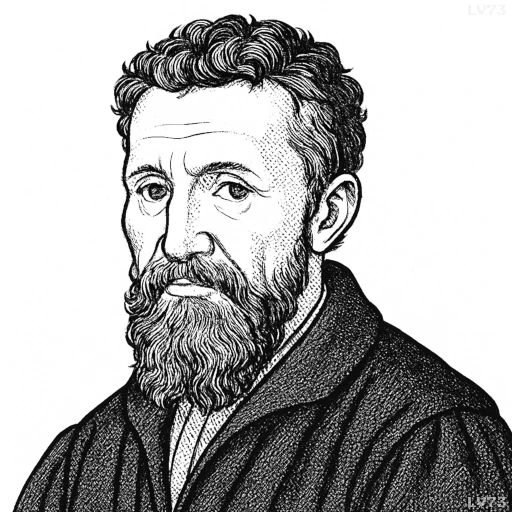“My soul can find no staircase to Heaven unless it be through Earth’s loveliness.”

- March 6, 1475 – February 18, 1564
- Born in the Republic of Florence (now Italy)
- Sculptor, painter, architect, poet
table of contents
Quote
“My soul can find no staircase to Heaven unless it be through Earth’s loveliness.”
Explanation
This quote reflects Michelangelo’s deep connection between spirituality and the physical world, expressing the idea that beauty in the earthly realm can act as a path to the divine. Michelangelo, a devout Christian, believed that art and nature were reflections of God’s creation. His works, particularly in the Sistine Chapel, are filled with religious symbolism, but they also display an incredible reverence for the human body and the natural world, suggesting that the beauty of creation itself is a means of accessing the divine.
In the modern context, this quote can be seen as a meditation on the intersection of art, spirituality, and the appreciation of the natural world. It highlights the belief that moments of beauty, whether in nature, art, or personal experience, can lead to transcendence or a higher state of being. For instance, in contemporary spirituality, many people find a sense of connection to something greater through the appreciation of art or nature rather than strictly through religious rituals.
Michelangelo’s view resonates in the works of later artists like William Blake or Vincent van Gogh, who also saw beauty in the world as a window to the spiritual. The idea that earthly beauty can elevate the soul aligns with movements in both art and philosophy, suggesting that the physical world is not separate from the divine but a reflection of it.
Would you like to share your impressions or related stories about this quote in the comments section?


